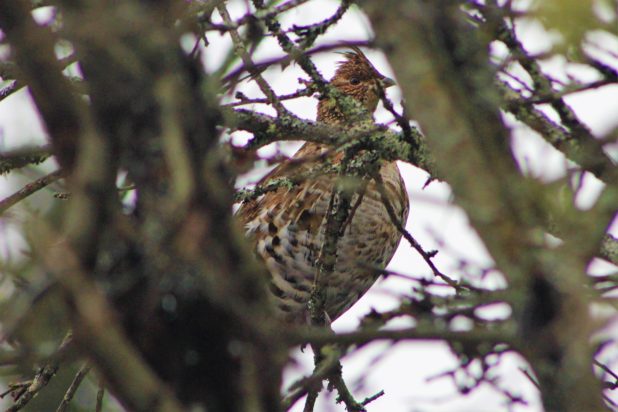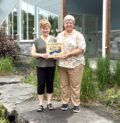Commentary
Learning from the living dead
October 30, 2018

Oct. 30, 2018
By Nate Smelle
AS far back as I can remember in my own personal history, I have always been fascinated with all things supernatural. Needless to say, I have also always been a big fan of Halloween. Since about the age of five, each year at this time my love and curiosity for all things unknown has provoked me to transform into a werewolf, zombie or some other manifestation of the living dead.
Investigating the origins of these creatures, I discovered that many of them arose from human consciousness in a shroud of historical fact and folklore. Take the werewolf for example. Ancient Greek historian Herodotus wrote of a tribe dwelling in northeast Scythia called the Neuri, that would shapeshift into wolves once a year. Throughout history this phenomenon has been observed by several cultures worldwide. In 16th century France, 30,000 people were accused of being werewolves. Furthermore, in Navajo culture, shaman are said to have the ability to transform into a werewolf-like being known as Yee Naaldlooshi, or skinwalkers. If the shaman was to remain in this form for too long, it is said they will lose their humanity and become even more powerful and dangerous.
Often hearing the howling of wolves from my front porch after midnight, I can understand how this beautiful sound has inspired both fear and wonder in all who have been lucky enough to hear it over the centuries.
Like werewolves, zombies and zombie culture also stemmed from a blend of fact and folklore. While studying the ethnobotanical landscape of Haiti, anthropologist Wade Davis chronicled the ongoing history of zombies in Haiti in his best-selling book, The Serpent and the Rainbow. Released in 1985, Davis’s book explored the case of Clairvius Narcisse, a man who was turned into a zombie-like slave for two years by a bokor (voodoo priest/priestess) who administered a dose of zombie powder made from a mix of plants and animal remains.
Contemplating the danger Davis put himself in to reveal the wisdom he was seeking, I could not help but ponder what it is about the shadows that compels many of us to embrace our fears and confront the unknown? Tackling this question with a friend of mine last weekend, we soon found ourselves engaged in a philosophical discussion on what it is that makes classic films like the Dawn of the Dead and television shows such as The Walking Dead so popular in today’s world. As she expressed her disgust with the brutal violence and gore portrayed on screen in these productions, I made my case for the value of the social commentary underlying the stories being told.
Anyone who has taken the time to absorb one of these bloody tales of the undead inevitably finds themselves questioning what they would do if they were living through a zombie apocalypse.
In any of the scenarios played out in these types of films and shows, as society crumbles resources such as water and food become more and more scarce. In turn, those with the will to survive are forced to do whatever it takes to keep breathing. The real worthwhile lessons in these stories seem to be in seeing how different people react and adapt to the chaos which has become the new world order.
With the luxury of convenient sustenance no longer an option, the main characters quickly need to adjust their way of living by scavenging for the basic necessities of life. Once these survivors accept the new reality and achieve a basic degree of personal safety, they almost always turn to growing their own food and collecting rainwater in an attempt to secure or prolong their existence.
Although there may not be a ravenous horde of the living dead pounding down our doors to devour our brains at this moment, we are now faced with a very real and terrifyingly similar threat of scarcity and extinction from our changing climate. As 100-year storms, floods and other extreme weather events become the new norm, like the survivors of a zombie apocalypse we need to adjust our way of life and prepare for the unexpected. This means eliminating our dependency on fossil fuels and making access to healthy food and clean water our main priority.
Similar to battling a zombie outbreak, we cannot prevent and mitigate the impacts of climate change alone. As Simon Pegg reminds us in his film Shaun of the Dead “the only thing that will redeem mankind is cooperation.”




















